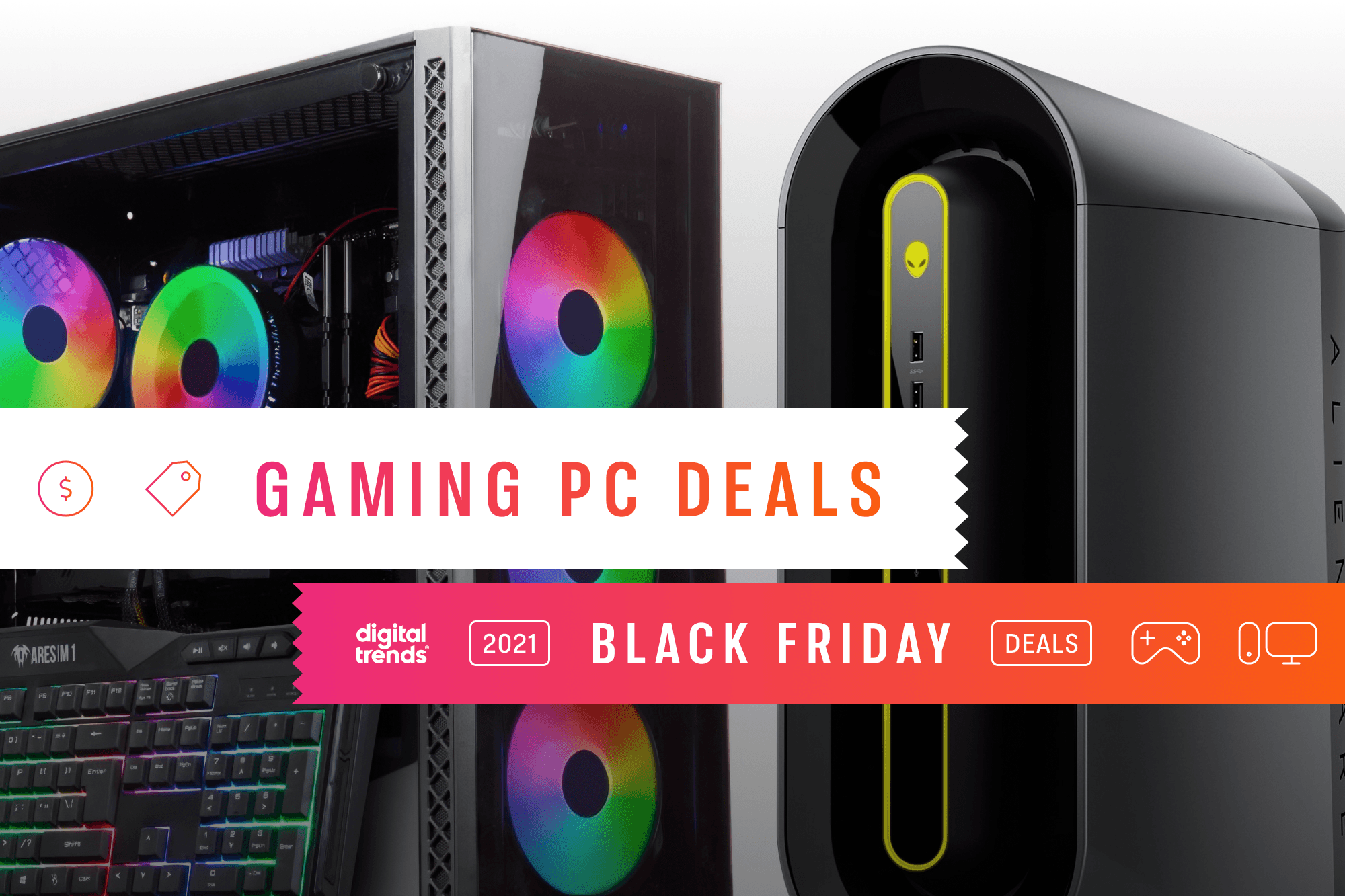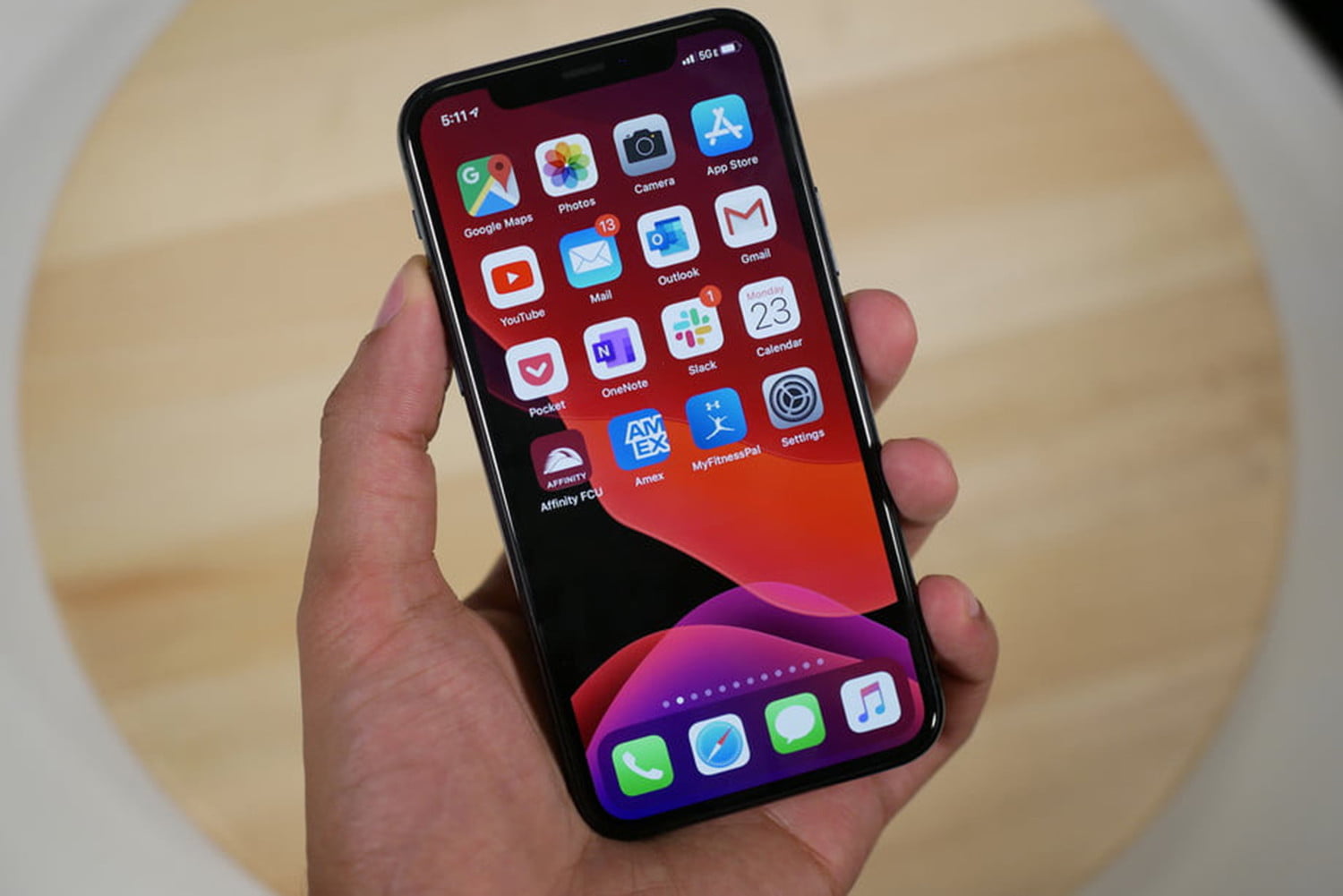No matter what your budget, we have the absolute best gaming PC deals neatly rounded up right here. Read on while we guide you through the best Black Friday deals, with a focus on the gaming PC Black Friday deals at the best prices. Alternatively, if you’re tempted by something more portable, check out the best Black Friday gaming laptop deals for something you can take with you anywhere.
Today’s best gaming PC deals
HP Pavilion GeForce GTX 1650 Gaming Desktop — $617 with code WINTER5, was $750
Gaming PC deals are the best opportunity to buy a great rig for less, as this HP Pavilion gaming desktop demonstrates. It has an AMD Ryzen 5 processor, 8GB of memory, 256GB of SSD storage, and an Nvidia GeForce GTX 1650 Super graphics card. It looks pretty cool, too, with a sleek yet understated tower design plus some subtle LED lighting. It’s ideal for gaming on a budget.
iBuyPower SlateMR GeForce RTX 2060 Gaming Desktop — $1,050, was $1,150
If you want something a little more muscular, there’s the iBuyPower SlateMR gaming desktop. It looks just as stylish and packs in lots of power courtesy of an AMD Ryzen 5 processor. Alongside that is 16GB of memory plus 480GB of SSD storage. Best of all is the Nvidia RTX 2060 graphics card that can easily handle the latest games.
Dell XPS GeForce RTX 3060 Gaming Desktop — $1,323, was $1,710
One of the best gaming desktops out there, the Dell XPS tower is stylish in a minimalist way but packs a punch when it comes to specifications. It has a current-gen Intel Core i7 processor, 32GB of memory, and 512B of SSD storage. In addition, there’s an Nvidia GeForce RTX 3060 graphics card so it’s able to handle all the latest games with ease. Alienware devices are well-cooled and are engineered for efficiency, so you know you’ve got a great system here.
How to choose a cheap gaming PC
As with any big purchase, make sure you know exactly what you want when buying a gaming computer. It’s not a bad idea to write down a checklist. It’s also important when looking specifically at cheap gaming PCs (i.e. those coming in at less than $1,000) to have realistic expectations — you’re not going to get multi-monitor 4K gaming at this price point. That said, it’s easy to achieve great results with 1080p/60fps gaming at high settings even for modern releases, and even for 1440p gaming when you move toward the upper end of our $1,000 price limit.
If playing at 1080p/60fps on one or two monitors is good enough, then you won’t have a hard time finding a good cheap gaming PC to meet your needs. If your demands are a bit higher, though, then expect to have to shop around a bit for the right deal. Also, be sure to bring yourself up to speed with the latest hardware — don’t just jump on the first attractive deal you find that meets your budget only to end up with a last-gen GPU that will feel long in the tooth here in 2021. Know what you want and what to expect from a cheap gaming PC that’s within your set budget and you won’t be disappointed, and for a more detailed breakdown of the sort of hardware you should look for, read on.
What makes a good cheap gaming PC?
The short answer is that a good price-to-performance ratio is what makes a cheap gaming PC “good,” and the good news here is that desktop computers already provide this sort of value by their very nature — it’s simply easier to fit all that beefy hardware into a desktop tower, whereas the scaled-down components of laptops (not to mention their built-in displays and keyboards) make those mobile PCs more expensive. That said, it’s still important to make sure you’re getting the most bang for your buck if you’re buying a pre-assembled desktop computer, as some are built better than others.
The three main hardware components that drive performance are the CPU, GPU (or graphics card), and RAM. Our recommendations: For your CPU, stick with a 9th, 10th, or 11th-gen Intel Core or one of the newer AMD Ryzen (sometimes called “Zen”) processors. For RAM, a minimum of 8GB is recommended for all but the cheapest gaming PCs, and 16GB is even better — but remember you can almost always add more RAM and this is one of the easiest (if not the easiest) components to swap out. GPUs are arguably the heart of a gaming computer; modern models include AMD’s Radeon 500, 5000, and 6000 series as well as Nvidia’s GTX 16-series and RTX 20- and 30-series GPUs.
Nvidia replaced their older 10-series GPUs in recent years, but there are still cheap gaming PCs floating around with these cards. Our advice: Avoid them unless your needs are modest and you can snag one for a seriously good deal. Even the entry-level 16-series Nvidia cards are faster and are ideal for 1080p gaming. For 1440p gaming, you’ll be better served with one of the 20-series cards such as the GTX 2060 or 2070. If anything bottlenecks your gaming PC’s performance, it will be an underpowered GPU, so this is the one component you don’t want to skimp on. One final thing to consider is upgradeability: If you plan to keep your chosen PC tower for a while, look at what sort of case and motherboard it’s using to determine if you can easily add and swap parts in the future. Some desktop PCs from brands like HP use proprietary components which will limit what parts you can add and can be costly to replace.
Are gaming PCs good for work?
It’s safe to say that running modern video games at good settings is generally a much more demanding job than most work tasks you’d normally need a computer for, so any gaming computer — even a cheap gaming PC — will be as well-suited for work and study as it is for play. The faster processors and high-speed RAM will make short work of simple tasks like web browsing, word processing, making spreadsheets, and so on, and the discrete GPU is also nice to have for graphical tasks such as video rendering. Another advantage of a desktop PC, particularly one with a graphics card, is the option to create a multi-monitor setup that can increase your productivity (and even a single monitor will still give you more screen real estate than a laptop display).


